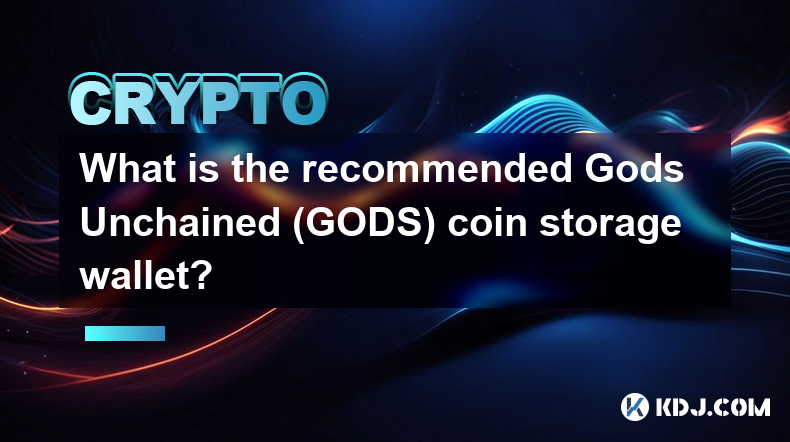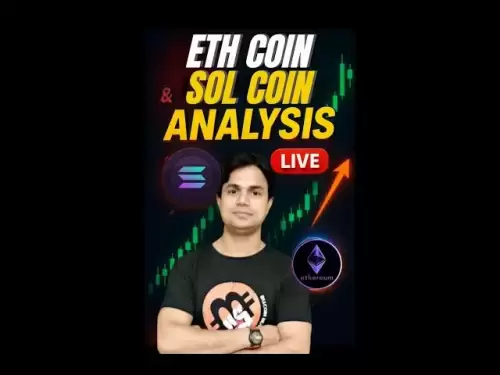-
 Bitcoin
Bitcoin $108,270.9768
2.07% -
 Ethereum
Ethereum $2,489.8066
2.50% -
 Tether USDt
Tether USDt $1.0004
0.01% -
 XRP
XRP $2.2035
0.66% -
 BNB
BNB $661.6608
2.32% -
 Solana
Solana $150.6425
2.13% -
 USDC
USDC $0.9999
-0.01% -
 TRON
TRON $0.2810
0.90% -
 Dogecoin
Dogecoin $0.1645
3.05% -
 Cardano
Cardano $0.5743
4.91% -
 Hyperliquid
Hyperliquid $38.8419
-0.15% -
 Bitcoin Cash
Bitcoin Cash $504.3134
-2.64% -
 Sui
Sui $2.8096
4.35% -
 Chainlink
Chainlink $13.3095
2.21% -
 UNUS SED LEO
UNUS SED LEO $8.9469
0.33% -
 Avalanche
Avalanche $17.9231
3.93% -
 Stellar
Stellar $0.2340
0.74% -
 Toncoin
Toncoin $2.8458
3.21% -
 Shiba Inu
Shiba Inu $0.0...01158
3.47% -
 Litecoin
Litecoin $86.0738
1.94% -
 Hedera
Hedera $0.1507
2.99% -
 Monero
Monero $319.8544
2.31% -
 Polkadot
Polkadot $3.4081
1.95% -
 Dai
Dai $1.0000
0.01% -
 Bitget Token
Bitget Token $4.5645
0.91% -
 Ethena USDe
Ethena USDe $1.0002
0.00% -
 Uniswap
Uniswap $7.2959
5.27% -
 Aave
Aave $272.4623
2.90% -
 Pepe
Pepe $0.0...09680
2.96% -
 Pi
Pi $0.4955
0.78%
What is the recommended Gods Unchained (GODS) coin storage wallet?
Understanding and selecting a secure wallet type is crucial for safeguarding your valuable Gods Unchained (GODS) coins.
Dec 26, 2024 at 07:00 pm

Key Points:
- Understanding Gods Unchained (GODS) coin and its storage requirements.
- Exploring various wallet options for securely storing GODS coins, including hardware wallets, software wallets, and custodial wallets.
- Evaluating the pros and cons of each wallet type to determine the optimal storage solution for GODS coins.
Understanding Gods Unchained (GODS) Coin and its Storage Requirements
Gods Unchained (GODS) is a non-fungible token (NFT) used in the Gods Unchained digital card game. GODS coins facilitate various in-game activities, such as purchasing new cards, staking for rewards, and participating in governance. Due to its growing popularity, securing GODS coins in a reliable and secure wallet is crucial.
Exploring Various Wallet Options for Securely Storing GODS Coins
Multiple wallet options are available for storing GODS coins, each with its advantages and disadvantages. Here are the primary types of wallets:
Hardware Wallets:
- Physical devices designed specifically for cryptocurrency storage.
- Offer high-level security through offline storage, making them less susceptible to online attacks.
- Recommended for storing large amounts of GODS coins or for long-term storage.
Pros:
- Enhanced security through offline storage.
- Immune to malware and phishing attacks.
- Suitable for holding significant crypto assets or long-term investments.
Cons:
- Can be expensive compared to other wallet options.
- Require physical possession of the device to access funds.
- May be inconvenient for frequent transactions.
Software Wallets:
- Digital programs that run on computers or mobile devices.
- Offer convenience and ease of use for everyday transactions.
- Available in various forms, including desktop, mobile, and web-based wallets.
Pros:
- Convenient for frequent transactions and daily use.
- User-friendly interfaces and simple setup process.
- Can integrate with hardware wallets for enhanced security.
Cons:
- May be vulnerable to malware or phishing attacks.
- Require constant internet connection for access.
- Less secure than hardware wallets, especially for storing large amounts of crypto.
Custodial Wallets:
- Third-party services that hold and manage crypto assets on behalf of users.
- Offer convenience and ease of use, eliminating the need for technical knowledge.
- May offer additional features, such as interest-earning accounts or built-in exchange platforms.
Pros:
- Convenient and user-friendly for beginners or casual users.
- No need for technical expertise or hardware storage.
- May offer additional services and features not available in other wallets.
Cons:
- Less control over crypto assets, as they are managed by a third party.
- May charge fees for transactions or withdrawals.
- May be susceptible to security breaches or regulatory issues.
FAQs:
Which wallet is the best for GODS storage?
- The choice depends on individual needs and preferences. Hardware wallets offer maximum security, software wallets provide convenience, and custodial wallets are suitable for beginners.
What is a seed phrase and why is it important?
- A seed phrase is a series of words generated when setting up a wallet. It acts as a recovery tool to restore access to funds in case the wallet is lost or damaged. Store the seed phrase securely offline.
How can I protect my GODS coins from theft?
- Use strong passwords and employ two-factor authentication when possible. Enable security features like hardware wallet integration or multi-signature wallets for enhanced protection. Be aware of phishing scams and only interact with legitimate platforms.
What is the difference between a hot wallet and a cold wallet?
- Hot wallets are connected to the internet, enabling easy transactions. Cold wallets are offline storage devices that provide enhanced security for long-term holdings.
Why is it important to store GODS coins securely?
- GODS coins are valuable assets and securing them protects them from loss, theft, or unauthorized access. Secure storage safeguards the value and integrity of the investment.
Disclaimer:info@kdj.com
The information provided is not trading advice. kdj.com does not assume any responsibility for any investments made based on the information provided in this article. Cryptocurrencies are highly volatile and it is highly recommended that you invest with caution after thorough research!
If you believe that the content used on this website infringes your copyright, please contact us immediately (info@kdj.com) and we will delete it promptly.
- Mormon Gold, Rare Coins, and Heritage Auctions: A Collector's Bonanza
- 2025-07-03 02:30:12
- Crypto News Flash: Real-Time Bitcoin Intelligence and XRP's Price Dip
- 2025-07-03 02:35:12
- Whale Supply Dwindles: What It Means for Bitcoin Investors
- 2025-07-03 01:10:12
- Altcoins to Watch: BDAG, APT, and DOT Lead the Charge in the Next Bull Run
- 2025-07-03 01:10:12
- AI Alliance Ignites: FET Price Rally on Horizon as Volatility Hits Rock Bottom
- 2025-07-03 01:50:12
- BONK Price Surge, Dogecoin Patterns, and BlockDAG's Double Up Offer: What's the Buzz?
- 2025-07-03 01:50:12
Related knowledge

How to customize USDT TRC20 mining fees? Flexible adjustment tutorial
Jun 13,2025 at 01:42am
Understanding USDT TRC20 Mining FeesMining fees on the TRON (TRC20) network are essential for processing transactions. Unlike Bitcoin or Ethereum, where miners directly validate transactions, TRON uses a delegated proof-of-stake (DPoS) mechanism. However, users still need to pay bandwidth and energy fees, which are collectively referred to as 'mining fe...

USDT TRC20 transaction is stuck? Solution summary
Jun 14,2025 at 11:15pm
Understanding USDT TRC20 TransactionsWhen users mention that a USDT TRC20 transaction is stuck, they typically refer to a situation where the transfer of Tether (USDT) on the TRON blockchain has not been confirmed for an extended period. This issue may arise due to various reasons such as network congestion, insufficient transaction fees, or wallet-rela...

How to cancel USDT TRC20 unconfirmed transactions? Operation guide
Jun 13,2025 at 11:01pm
Understanding USDT TRC20 Unconfirmed TransactionsWhen dealing with USDT TRC20 transactions, it’s crucial to understand what an unconfirmed transaction means. An unconfirmed transaction is one that has been broadcasted to the blockchain network but hasn’t yet been included in a block. This typically occurs due to low transaction fees or network congestio...

How to check USDT TRC20 balance? Introduction to multiple query methods
Jun 21,2025 at 02:42am
Understanding USDT TRC20 and Its ImportanceUSDT (Tether) is one of the most widely used stablecoins in the cryptocurrency market. It exists on multiple blockchain networks, including TRC20, which operates on the Tron (TRX) network. Checking your USDT TRC20 balance accurately is crucial for users who hold or transact with this asset. Whether you're sendi...

What to do if USDT TRC20 transfers are congested? Speed up trading skills
Jun 13,2025 at 09:56am
Understanding USDT TRC20 Transfer CongestionWhen transferring USDT TRC20, users may occasionally experience delays or congestion. This typically occurs due to network overload on the TRON blockchain, which hosts the TRC20 version of Tether. Unlike the ERC20 variant (which runs on Ethereum), TRC20 transactions are generally faster and cheaper, but during...

The relationship between USDT TRC20 and TRON chain: technical background analysis
Jun 12,2025 at 01:28pm
What is USDT TRC20?USDT TRC20 refers to the Tether (USDT) token issued on the TRON blockchain using the TRC-20 standard. Unlike the more commonly known ERC-20 version of USDT (which runs on Ethereum), the TRC-20 variant leverages the TRON network's infrastructure for faster and cheaper transactions. The emergence of this version came as part of Tether’s...

How to customize USDT TRC20 mining fees? Flexible adjustment tutorial
Jun 13,2025 at 01:42am
Understanding USDT TRC20 Mining FeesMining fees on the TRON (TRC20) network are essential for processing transactions. Unlike Bitcoin or Ethereum, where miners directly validate transactions, TRON uses a delegated proof-of-stake (DPoS) mechanism. However, users still need to pay bandwidth and energy fees, which are collectively referred to as 'mining fe...

USDT TRC20 transaction is stuck? Solution summary
Jun 14,2025 at 11:15pm
Understanding USDT TRC20 TransactionsWhen users mention that a USDT TRC20 transaction is stuck, they typically refer to a situation where the transfer of Tether (USDT) on the TRON blockchain has not been confirmed for an extended period. This issue may arise due to various reasons such as network congestion, insufficient transaction fees, or wallet-rela...

How to cancel USDT TRC20 unconfirmed transactions? Operation guide
Jun 13,2025 at 11:01pm
Understanding USDT TRC20 Unconfirmed TransactionsWhen dealing with USDT TRC20 transactions, it’s crucial to understand what an unconfirmed transaction means. An unconfirmed transaction is one that has been broadcasted to the blockchain network but hasn’t yet been included in a block. This typically occurs due to low transaction fees or network congestio...

How to check USDT TRC20 balance? Introduction to multiple query methods
Jun 21,2025 at 02:42am
Understanding USDT TRC20 and Its ImportanceUSDT (Tether) is one of the most widely used stablecoins in the cryptocurrency market. It exists on multiple blockchain networks, including TRC20, which operates on the Tron (TRX) network. Checking your USDT TRC20 balance accurately is crucial for users who hold or transact with this asset. Whether you're sendi...

What to do if USDT TRC20 transfers are congested? Speed up trading skills
Jun 13,2025 at 09:56am
Understanding USDT TRC20 Transfer CongestionWhen transferring USDT TRC20, users may occasionally experience delays or congestion. This typically occurs due to network overload on the TRON blockchain, which hosts the TRC20 version of Tether. Unlike the ERC20 variant (which runs on Ethereum), TRC20 transactions are generally faster and cheaper, but during...

The relationship between USDT TRC20 and TRON chain: technical background analysis
Jun 12,2025 at 01:28pm
What is USDT TRC20?USDT TRC20 refers to the Tether (USDT) token issued on the TRON blockchain using the TRC-20 standard. Unlike the more commonly known ERC-20 version of USDT (which runs on Ethereum), the TRC-20 variant leverages the TRON network's infrastructure for faster and cheaper transactions. The emergence of this version came as part of Tether’s...
See all articles

























































































